Electricity is a fact of life, everyone needs electricity to power their home, devices, and now cars. With our increased demand for electricity, more consumers than ever are looking to better understand and ultimately lower their electricity bill.
Our energy experts have put together a list of the 6 questions you need to ask if you want to truly crack the code on your electric bill. These tips may not make you the life of your next party, but they will help you save money, and learn about something that plays a big role in everyday life.
How Much is the Average Electricity Bill?
The first step to demystifying your electric bill is to build a point of comparison. If you don't know what others are paying, how can you determine if you are being over charged. Lots of less-than-honest companies go out of their way to play games with electricity rates and shopping. This has created a ton of confusion, and frustration. Luckily there are honest people in the world, like the U.S. Energy Information Administration (and APG&E of course).
Every year the EIA requires all market participants to report on average prices, sales, customer counts and quantity of power provided. To be honest, the EIA reports are thorough, but difficult to use. That is why we pulled as much of the pertinent information as possible and created a guide to help customers understand the average electric bill, in their state, and for their home.
Electricity rates can very by zip code, but here is a quick reference for some common states.
Average Electric Bill in Texas: $131.63
Average Electric Bill in Pennsylvania: $120.04
Average Electric Bill in Ohio: $114.80
Average Electric Bill in Maryland: $133.68
Average Electric Bill in New Jersey: $106.28
Average Electric Bill in New York: $111.93
Why is My Electric Bill So High?
After researching average electricity bills, people usually have one of two reactions. Either they are happy with what they are paying, or they want to know why they pay so much more than average. We find that most people are shocked lo learn how hight their electricity bill is compared to the norm, and want answers. Our team has build a guide to tackle to answer the question "Why is my electric bill so high?"
How Can I Lower My Electric Bill?
This is very likely the most common question that people ask about their electricity bill. The fact of the matter is, while there are variety of ways that you can lower your electric bill, they all come down to two major themes. First, you can lower the amount of electricity, measured in kilowatt hours, that you consume. Secondly you can select a new energy provider (hint, hint).
If you are sure that you have a great supplier, and that your rate is the best available (hint, hint, again), then it might be time to start working some of the more common reasons why you are using more energy than you need to.
A great starting place is a home energy audit. Having an expert take a look at your home can shed light on where you may be losing power and money every month. For more great tips, check out our guide on lowering your electric bill for more great tips.
How Much Electricity Do My Devices Use?
These days, it seems like everything plugs in, or takes power in some form - even kitchen sinks are "smart" now. With all these new devices, it can be difficult to sort how how much energy each of your devices is using.
If you are curious, there are devices that can be installed to measure the amount of power that a single appliance consumes. For more information on these devices, as well as a good baseline understanding of electricity usage around the home, read our rundown of how much electricity devices use.
What are TDU Charges?
TDU Delivery Charges, sometimes called TDSP charges, are payed to your local utility to maintain the poles and wires. Your supplier is responsible for working with generators to get you a great rate on electricity, but the maintenance of your local infrastructure is still the job of your utility (Centerpoint, Oncor, etc). All of this maintenance can get very expensive, so your utility works with your supplier to collect money to help pay for it.
Some suppliers present just their price when advertising, completely omitting the charges that will be added on by the utility. This dishonest practice causes customers to believe they are getting a lower rate... until their first bill comes. Honest suppliers (like APG&E) show an estimated price inclusive of the TDSP charges, allowing customers to make a fair comparison and understand what they will really pay.
To learn more read our guide called "What are TDU Charges?"
Can I Get Help Paying My Electric Bill?
Everyone gets behind on things from time to time. Electric bills are no exception. If you are not able to pay your bill, don't panic, there are organizations that can assist with one time bill payments to help you keep the lights on. We pulled together a list of the best organizations nation wide, as well as some tips on how to research and find more. Check out our guide on getting help paying your electric bill.


